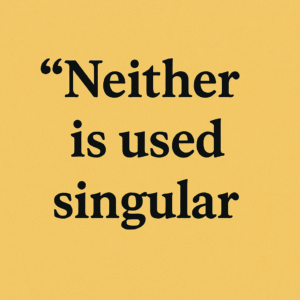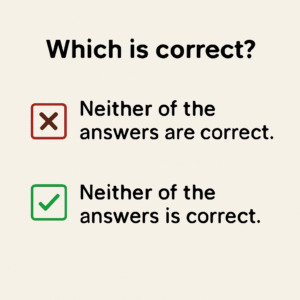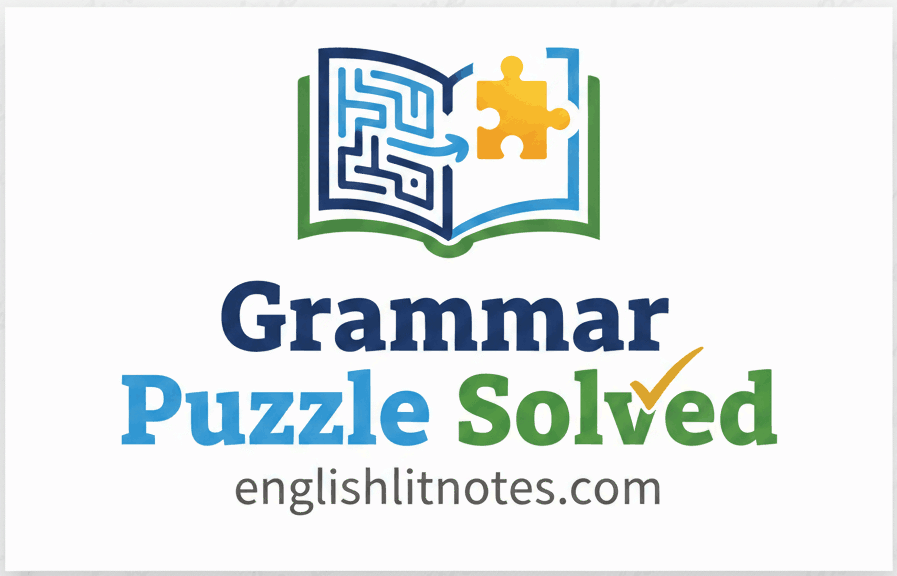Neither of the answers are OR is-GPS-27
(A) Neither of the answers are correct. OR (B) Neither of the answers is correct. -Grammar Puzzle Solved (27)

✅ Correct Answer:
B) Neither of the answers is correct.
🔍 Understanding the Rule:
In English grammar, subject-verb agreement plays a vital role in sentence construction. One of the most commonly misunderstood words in this area is “neither.” Many assume that because “answers” is plural, the verb must also be plural. However, that assumption is incorrect.
Let’s break it down. The word “neither” functions as a singular subject. It means “not one” or “not the other” of the two. Therefore, it should always be followed by a singular verb—even if it refers to multiple items.
✔ Correct Example:
Neither of the answers is correct.
✖ Incorrect Example:
Neither of the answers are correct.
Although the noun “answers” is plural, the subject of the sentence is “neither,” and that determines the verb form. Using “is” instead of “are” maintains the singular agreement required.
🧠 Why It Matters:
Mistakes in subject-verb agreement, especially with words like “neither,” can confuse readers and weaken the clarity of your communication.
🌟 Extra Examples for Better Understanding:
-
Neither of the players is ready for the game.
-
Neither of the proposals makes sense to the committee.
-
Neither option appeals to the voters.
✨ Related Rule:
This rule also applies to similar words such as “either” and “each.” All three words—neither, either, and each—are treated as singular and must be paired with singular verbs:
-
Either of the books is fine.
-
Each of the cookies tastes delicious.
🎯 Conclusion:
When using “neither,” always pair it with a singular verb, regardless of the plural noun that follows. This approach strengthens grammatical accuracy and keeps your writing clear and effective. By following this simple rule, you can avoid one of the most frequent grammar mistakes.

The History of English Literature: https://englishlitnotes.com/category/history-of-english-literature/
Three Friends and a Bag of Gold:
https://englishwithnaeemullahbutt.com/2025/05/09/three-friends-and-a-bag-of-gold/
Grammar Puzzle Solved:
https://grammarpuzzlesolved.englishlitnotes.com/example-sentence-using-pointlessness/
For grammar lessons, visit ChatGPT to explore the platform and interact with the AI: https://chat.openai.com
Discover more from Grammar Puzzle Solved by Naeem Ullah Butt
Subscribe to get the latest posts sent to your email.
